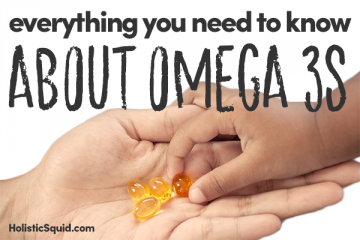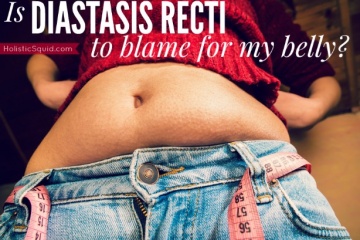
Do you ever find yourself stumped on how to buy eggs? Free range, cage free, organic, pastured… What's the difference and why should you care? For that matter…
What's so great about eggs anyway?
In the last few decades eggs have gotten a rotten reputation for fear of saturated fat and cholesterol, but those ideas are simply untrue: eggs are a nutritional super hero! They're affordable and packed with nutrition – including the fat and cholesterol that is essential for human health.
According to a great article at Westonaprice.org
“Besides providing all eight essential protein-building amino acids, a large whole, fresh egg offers about six to seven grams of protein and five grams of fat (with about 1.5 grams of it saturated), which comes in handy to help in the absorption of all the egg's fat-soluble vitamins. One egg also serves up around 200 milligrams of brain-loving cholesterol and contains the valuable vitamins A, K, E, D, B-complex and minerals iron, phosphorus, potassium and calcium.
Choline, another egg-nutrient, is a fatty substance found in every living cell and is a major component of our brain. Additionally, choline helps break up cholesterol deposits by preventing fat and cholesterol from sticking to the arteries.
So the bottom line is, don't be chicken about eating eggs, especially the cholesterol-rich yolks!”
Eggs can play an important role in a balanced, nutritious diet. But an egg is not just an egg!
The way chickens are raised, fed and kept all affect the nutritional value, taste, and possible health risks of the eggs and meat they produce.
Cracking the code words on egg labels
Poultry and egg farmers use a variety of code words on labels to describe how chickens are raised. But what do these labels really mean?
Free range
Free range simply means chickens are housed such that they may go outdoors if they choose, but they could be outside for as little as 5 minutes a day or not at all and still be labeled “free range.”
Cage free
Cage free poultry are kept out of cages, but that doesn't mean they aren't kept indoors or in over-crowded, unsanitary conditions.
Organic
Organic eggs or poultry are guaranteed to have been fed only organic feed, and they are certified to be free of antibiotics. However, they may still have no or very restricted access to the outdoors and their healthiest, natural diet.
Vegetarian fed
When a carton says “vegetarian fed,” poultry are given a strictly vegetarian diet, which may reduce the potential for them to contract diseases from animal products found in poultry feed. However, chickens are omnivores that consume animal protein as part of their natural diet (mainly in the form of insects and other grass-dwelling creatures). Strictly vegetarian fed poultry is at risk for being malnourished if not supplemented with some form of healthy plant-based protein.
Fertile
Fertile eggs indicate a chicken is probably free-range and potentially has access to interactions with a rooster. Some view this as a sign of poultry that may have a higher quality of life than caged chickens. Since eggs are usually collected and refrigerated within a day of laying, you're not likely to encounter any developing embryos while eating fertile eggs.
Omega-3 eggs
Omega-3 eggs are produced by hens that are specially fed a diet (usually including flax meal) that is rich in omega-3 fatty acids. These eggs have 3 to 6 times the amount of omega-3 fatty acids found in other eggs, however they are not free-range or pastured unless also stated.
Brown vs. white – (or green or speckled!)
The color of eggs does not reflect quality or nutritional value – only the breed of hen laying them. What's more telling is the color of the yolk: The more deep orange the yolk is, the better quality and the fresher the eggs.
Pastured / grass fed
These chickens have ample access to the outdoors where chickens are exposed to sunshine and have the opportunity to eat grass and insects.
The importance of chickens' exposure to the outdoors can't be overestimated in terms of quality and nutritional value. Scratching in dirt and grass, basking in the sun, bathing in the rain and hunting for and eating bugs are natural chicken behaviors. When these activities are restricted, the health of the chicken is compromised.
“Compared to eggs from conventionally raised, caged hens, eggs produced by free-roaming and pasture-pecking chickens have more omega-3 fatty acids, vitamin E and vitamin A, along with notably higher amounts of folic acid and vitamin B12.”
What's the result of keeping chickens in cramped indoor quarters?
Factory farmed eggs and poultry contain far fewer vitamins and nutrients and higher risk of exposure to antibiotics and diseases that may run rampant in unsanitary, overcrowded conditions. By purchasing factory farmed poultry and eggs produced by “battery hens” kept in cramped cages, you also support the inhumane treatment of chickens.
Eggs and poultry that come from pastured chickens are healthier, more nutritious and much tastier than factory farm products. Egg whites are thicker, yolks are bigger, darker and appear orange rather than pale yellow.
Healthy poultry meat is pink-colored, sweet smelling and more elastic than that produced from factory chickens. When cooked, the meat is more tender, juicier and fresher tasting.
What about cost?
Though more expensive, the nutritional density is certainly worth the price when it comes to eggs. Even the most expensive eggs can stretch a long way if you cook them up with lots of veggies in an omelette.
Eggs are far cheaper than pasture-raised chicken or beef, and for vegetarians they are a dietary essential.
How to buy eggs: my top 3 priorities
#1 – Eggs from Pastured Chickens – as opposed to just “free range” or “cage free.” These are harder to find, but nutritionally worth it. Second best would be free range eggs. Anything else, I wouldn't eat.
#2 – Local – Buy from local farmers who pasture-raise poultry and eggs. Farmers markets and CSA farm boxes will usually have happy, healthy chickens and eggs if you don't have a chicken farm down the street.
By buying local you support the local economy and avoid the environmental impact of eating eggs shipped from Wisconsin to California. If you're really ambitious and have the space, consider keeping a coop in your back yard. It doesn't get more local than that!
#3 – Organic – the best choice for avoiding exposure to antibiotics and toxins passed through feed. Organic, locally produced poultry products are the optimal choice, but it's difficult for farmers to control what their chickens eat if they're pasture-raised.
In many cases, local farmers feed pastured poultry antibiotic-free, organic feed, but they're unable to be certified as organic. Don't insist on the organic label if the chickens and eggs are properly raised.









What csa do you subscribe to?
I live in LA too and am looking at many options.
Hi Kathi. We love Abundant Harvest Organics. In addition to our produce box, we get our raw milk, cream, and cheese as well as wonderful eggs from pastured hens.
Delusional. Free range, cage free, none of it means a damn thing except: “we’d like your money & wish to give you the illusion of choice as well as the illusion there I any damn difference between one suffering hen’s period and another. There isn’t. It’s not good for you, the hen, or anything other than your farmers wallet. Period!
The “Vegetarian Fed” concerns me most of all, because much of their feed will be GMO.